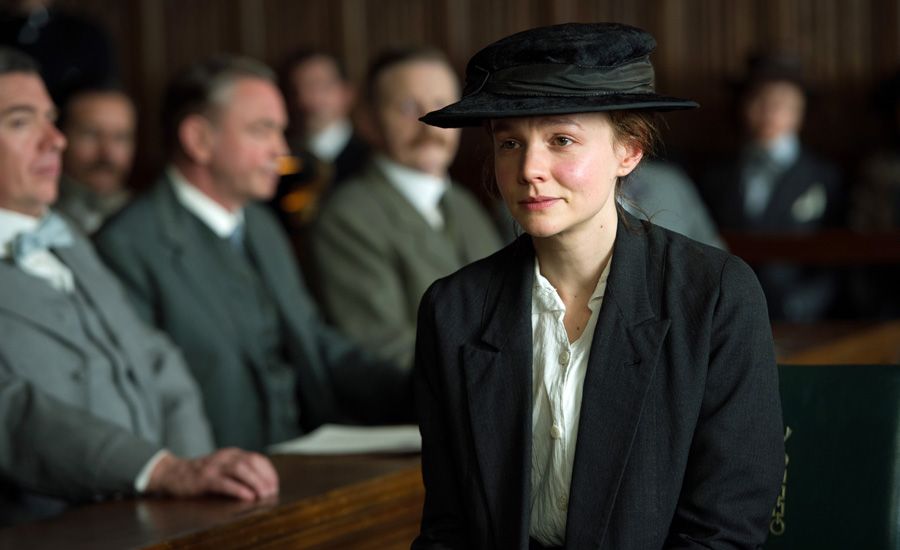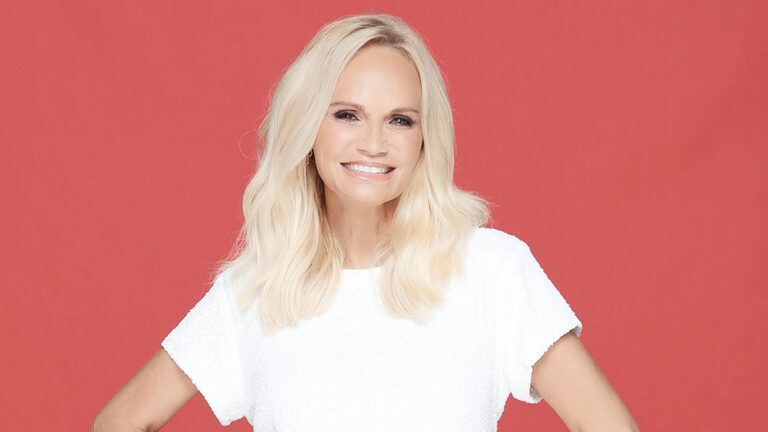The term “suffragette” might conjure up visions of women donning sashes and sporting comically big hats over tea. Or perhaps it summons an image of Mrs. Banks from Mary Poppins — an enthusiastic aristocrat who marched around her home singing of being a soldier in a petticoat. Both are common caricatures of the movement that fought for decades to ensure women had the right to vote — caricatures that are decidedly struck down in Focus Feature’s latest film, Suffragette.
The movie, which stars Carey Mulligan, Meryl Streep and Helena Bonham Carter, follows a group of British working class women in the early 20th century as they lobbied for women’s rights. Guideposts spoke with the film’s producers Alison Owen and Faye Ward about everything from controversial aspects of the film — including contentious magazine covers and the lack of racial diversity in the cast — to the struggles they faced getting a movie centered on women’s right made in a decidedly male-dominated industry and why they want audiences to leave the movie feeling angry.
Why do you think it’s taken so long for a film like this to be made?
Owen: The British suffragettes haven’t always been served well by the history books. They’ve been erased. The history of working class women is almost invisible [and] that’s partly why we made this film. We wanted to tell stories of working class women but there were very few records of working class women and their history. We had to research memoirs and archives and diaries. Eventually we decided to combine the experience of a number of women together to create the character [the title character] Maud. I think it’s taken it 100 years because the story’s not even told in schools, let alone in a cinema and also because the film industry is so male-dominated. At any given time there’s only between one and ten percent of directors that are women, usually much nearer one. I think a lot of people assumed this story just wouldn’t be of any interest.
This is definitely a female-driven movie. Was it important to you to have women working in front of the camera and behind the camera on this one?
Owen: It was very important. The support of the women involved was much bigger than usual. It was both a conscious decision and a practical decision. It was a film about women so we wanted to give women as many chances as we could to be involved but also we felt that women have such a passion for this subject they would work day and night for it to honor and pay tribute to these women. To have made as many movies as Faye and I have and to finally sit behind the monitor and see the screen filled with women, five great actresses at any one time, was very satisfying.
The Suffragette movement lasted decades. Why did you choose this time period and these events to focus on?
Owen: The question we’ve been asked is ‘Well, why don’t you show when they got the vote?’ We did think about that but there were challenges with that. The biggest period of activism was just before the first World War and then the movement sort of got interrupted for four years. Then they gave the vote to some women but not [all]. So it was a staggered achievement and it would’ve been hard to show that triumphant moment on screen. That forced us to look at it with more imagination and to ask ‘What was the most vital moment? When was the vital change that led to that accomplishment?’ We identified it as those 16 months culminating in Emily Wilding’s death — in her throwing herself on the track at the Derby — which is when public opinion and the mocking, which had been pretty vile, suddenly changed. That was the moment when the winds of changed stopped blowing one way and started blowing another.
Watching the film, it’s bloody and violent in some ways. Was it important to you to show these women in an honest, sometimes brutal light?
Ward: Completely. I think in history, [the British Suffragettes] have been marginalized and reduced to a footnote and written about with comical effect. We wanted to show the reality of what these women did and the sacrifices they made. It wasn’t just the Mary Poppins ladies in big hats. This was a political movement. It shouldn’t be something that was mocked. It was important that we shook those shackles and showed what these women really did.
You’ve faced criticism over the lack of women of color in the film which have prompted discussions about the differences between the British Suffragette movement and the American Suffragette movement …
Ward: I’m glad you brought that up because we’re really grateful for any discourse around the subject because it’s so important. Obviously we support all kinds of stories being told, both men and women and any kind of ethnic minority. There were similarities and differences in both movements. In Britain, we obviously didn’t have the richness in culture that we do today and that America did. In our Suffragette movement, there very few women of color. The two that were well-known were Indian women who were both aristocratic women. They differ in so many ways from the working women that our film concentrates on. In the American movement, there were exclusion [issues] – there’s the famous story of Ida B. Wells being made to walk at the back of the suffrage parade. We understand that there are sensitivities involved, but we feel the two movements are just so different.
Well what I appreciate about this film is the fact that you did focus on the working woman, not the middle class or aristocratic women …
Ward: That was our intention. The story we wanted to tell was the story of the forgotten woman. We thought that would resonate much more with women today.
You were talking about wanting the film to be modern. It does, inadvertently touch on issues women still face today — the wage gap and sexism in the workplace in particular. What do you hope the film can add to conversation of equality that were having right now?
Owen: I think we hope it exposes and starts to educate. On a positive note, we want people to feel empowered by the film and these conversations and we hope that people start to engage in politics – especially the younger generation. It’s important that people vote. You have to be part of the conversation. In America but especially in the U.K. it’s the 18-25 year old females that don’t vote. There’s a very limited turnout there and I think that’s really scary that they don’t want to engage. We hope that’s what we can inspire and we want to inspire filmmakers to make these kinds of stories and know that there’s an audience for it.
Ward: And just like you said at the beginning of this call, when you said you left the screening feeling angry. That’s what we want. We want people to feel angry and then to go out and do something about it.





